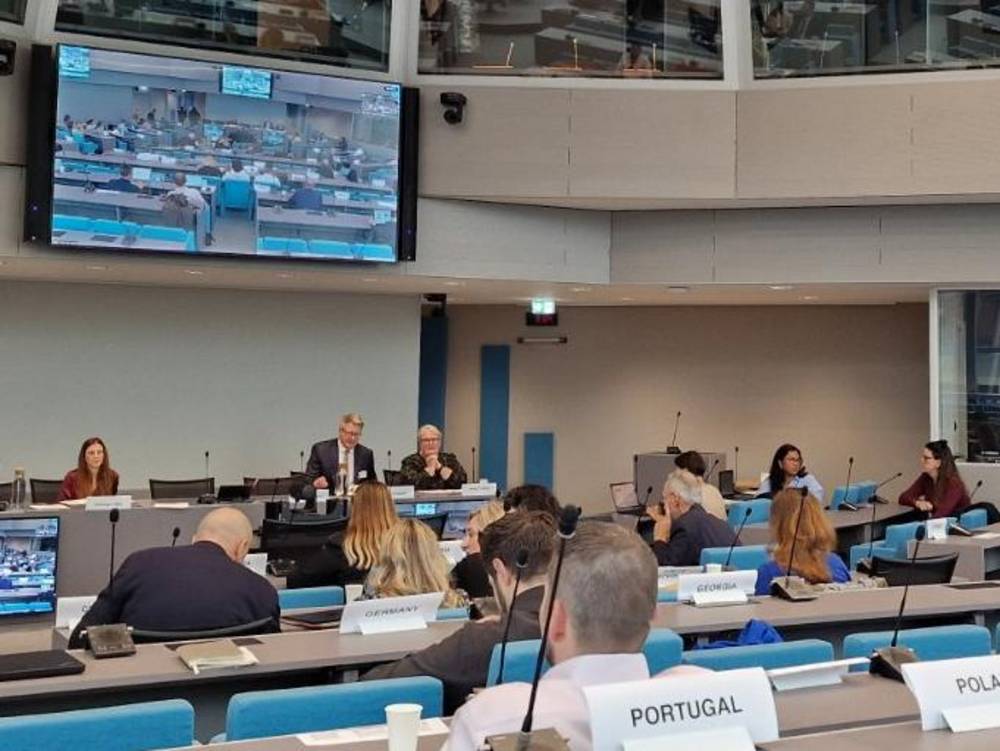On 24 and 25 September 2024, Deputy Ombudsman Ivan Šelih took part in an international conference at the Palace of the Council of Europe in Strasbourg, where they spoke about the health care of persons with disorders caused by the use of psychoactive substances, who were deprived of their liberty. The conference was organised by the European Forum of National Preventive Mechanisms (DPM) and the Pompidou Group. The participants exchanged opinions and experiences, learned about promising practices, and discussed effective legal remedies and approaches aimed at improving the living conditions of incarcerated persons with addiction to psychoactive substances.
The European Committee for the Prevention of Torture and Inhuman or Degrading Treatment (CPT) has emphasised since 1993 that imprisoned persons have the right to the same medical care as individuals in the local community and that an inadequate level of medical care can quickly lead to situations falling within the scope of the term 'inhuman and degrading treatment'. The European Court of Human Rights found such behaviour precisely in the case of Wenner v. Germany, where it was a matter of preventing appropriate treatment of prisoners with a history of opioid addiction, and thus found a violation of Article 3 of the European Convention on Human Rights. Article 11 of the European Social Charter also confirms the right to health protection, placing the final responsibility for its fulfilment on the states, either directly or through cooperation with public or private organisations.
The prevalence of drugs in prisons is a major problem in the management of prison life, and due to injecting drugs, there is also a higher incidence of infectious diseases such as HIV, hepatitis C, and active tuberculosis among the prison population compared to the wider community. Among incarcerated persons worldwide, the mental health of incarcerated persons is also a public health concern due to the risk of psychiatric comorbidity.
At the conference, it was particularly pointed out that NPMs play a key role in monitoring the treatment of persons addicted to psychoactive substances in institutions for the enforcement of criminal sanctions. Through their efforts, they not only identify basic structural deficiencies, but also highlight best practices in places of deprivation of liberty. That is why, over the course of two days, the conference participants learned about the most important principles related to the provision of drug addiction treatment in prisons and promising practices observed in the participating member states, as well as shortcomings and recommendations for improvement. People struggling with addictions are a particularly vulnerable group of prisoners, so the conference participants emphasised the need for a specialised approach. They also explored some of the most important public health challenges in the field of drugs today and also discussed the specifics of monitoring the deprivation of liberty and the treatment of these persons who are dependent on psychoactive substances. They empowered themselves to better monitor treatment conditions, improve the implementation of human rights standards in their treatment, and raise awareness among prison staff and their management about the need to ensure quality treatment. They reviewed the case law and discussed the need for legislative and regulatory safeguards and appropriate conditions for the treatment of people with addiction in prisons as a way to solve the problem of overcrowding and inhumane treatment.
Representatives of NPMs and other participants also drew attention to the 2022 European Union Recommendations on the procedural rights of suspects and defendants in pre-trial proceedings and on the material conditions of detention, which emphasise that "Member States should ensure that special attention is paid to the treatment of detainees persons with drug addiction, the prevention and care of infectious diseases, mental health, and suicide prevention". They also learned about the preparation of a guide for monitoring the implementation of the mentioned recommendation. They also stressed that medical and treatment measures in prisons can play a key role even after the reintegration of imprisoned people into society, facilitating the continuation of treatment and preventing drug-related deaths.

![[Translate to English:] Prostor konference](/fileadmin/_processed_/0/3/csm_Selih___Strasbourg_1_571124a34c.jpg)